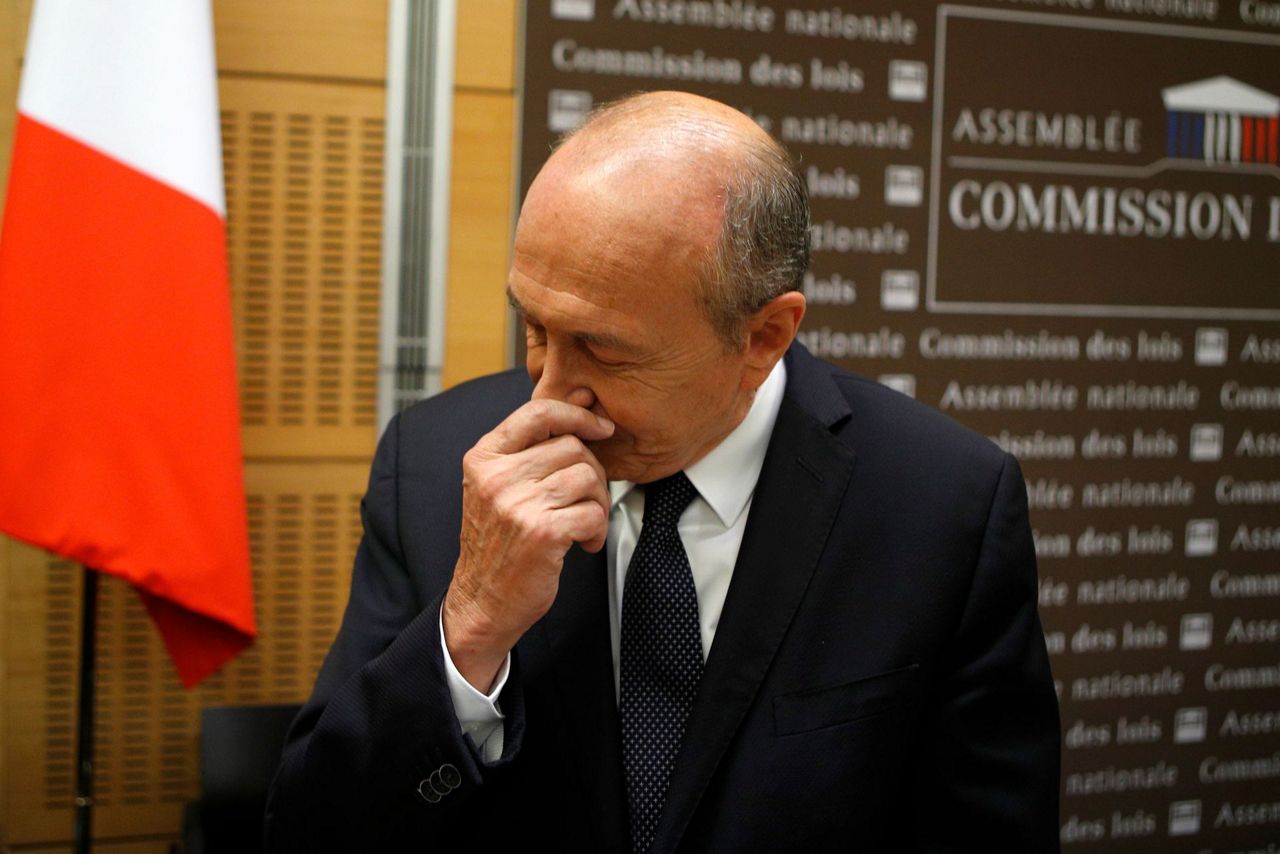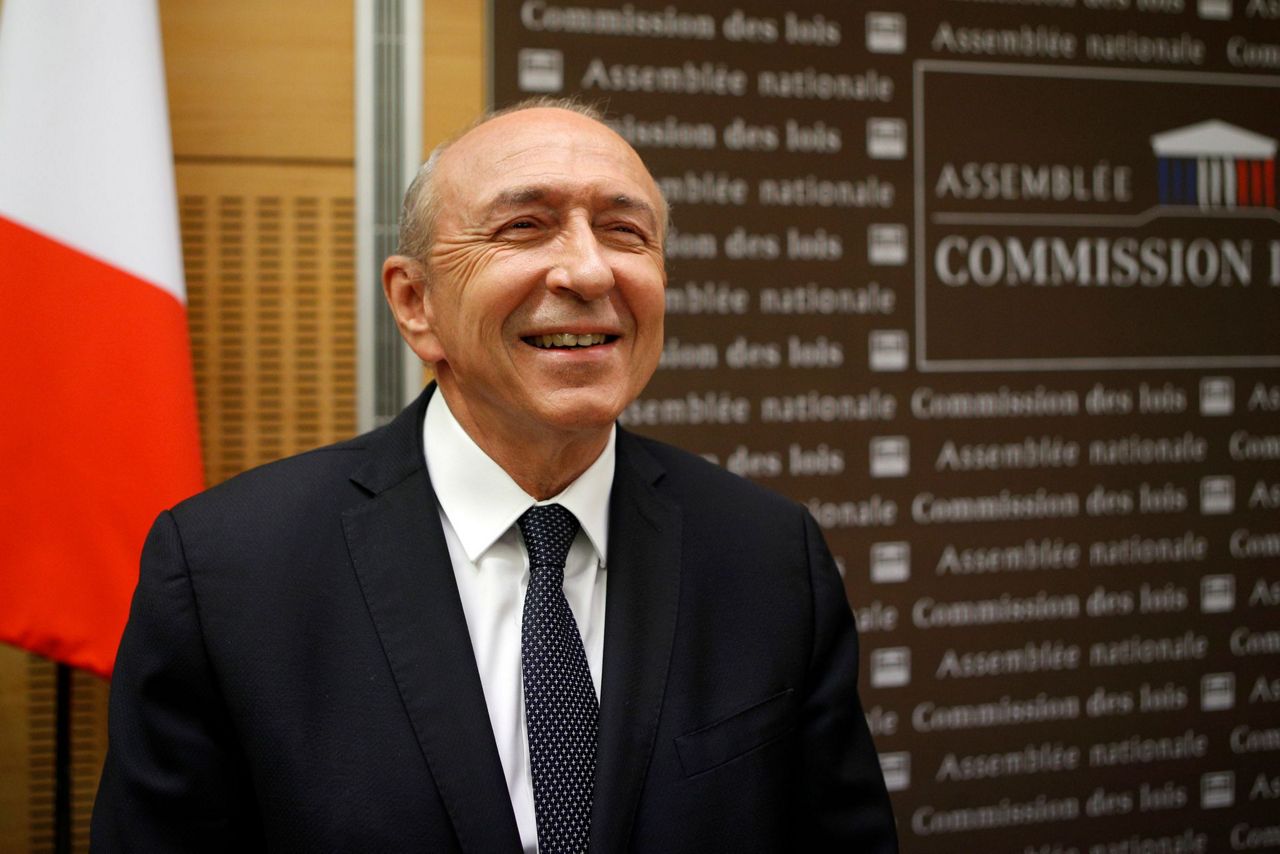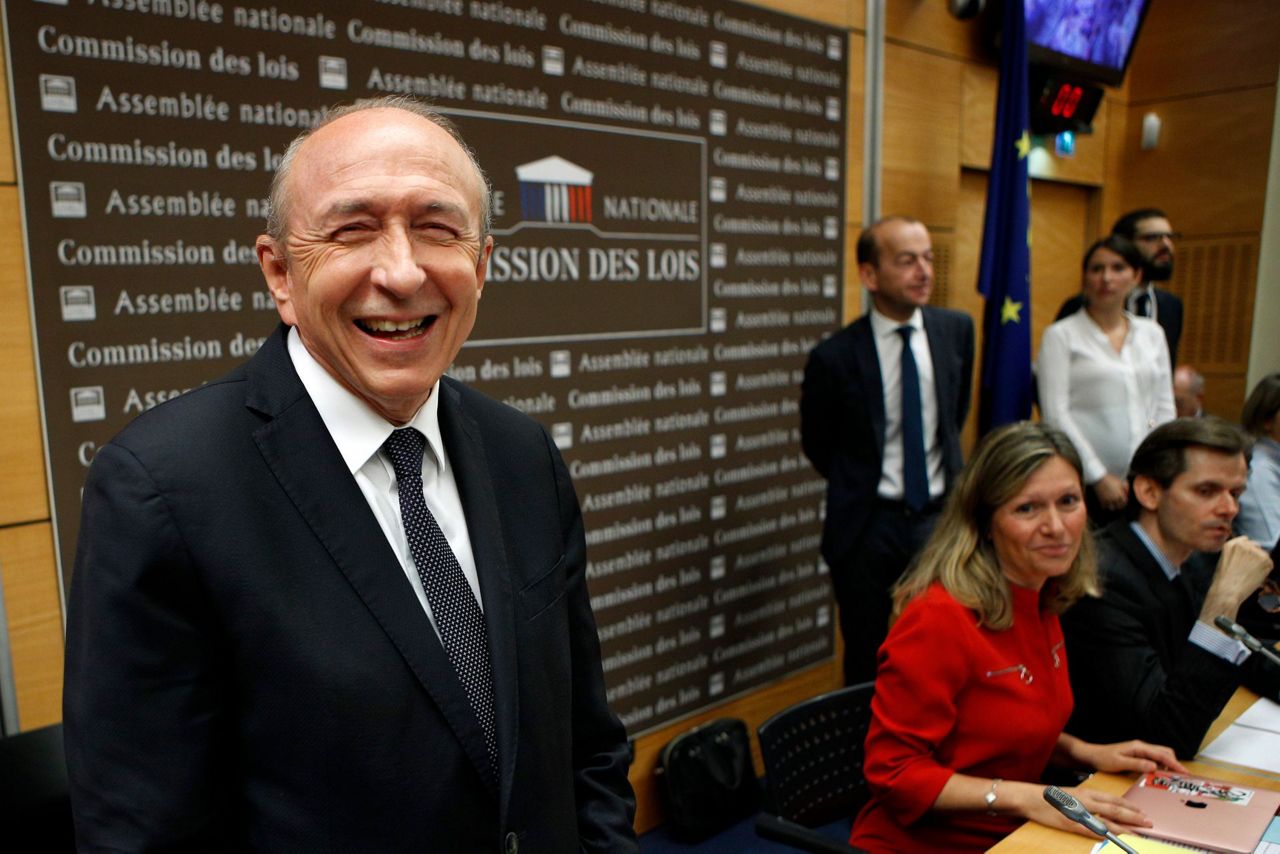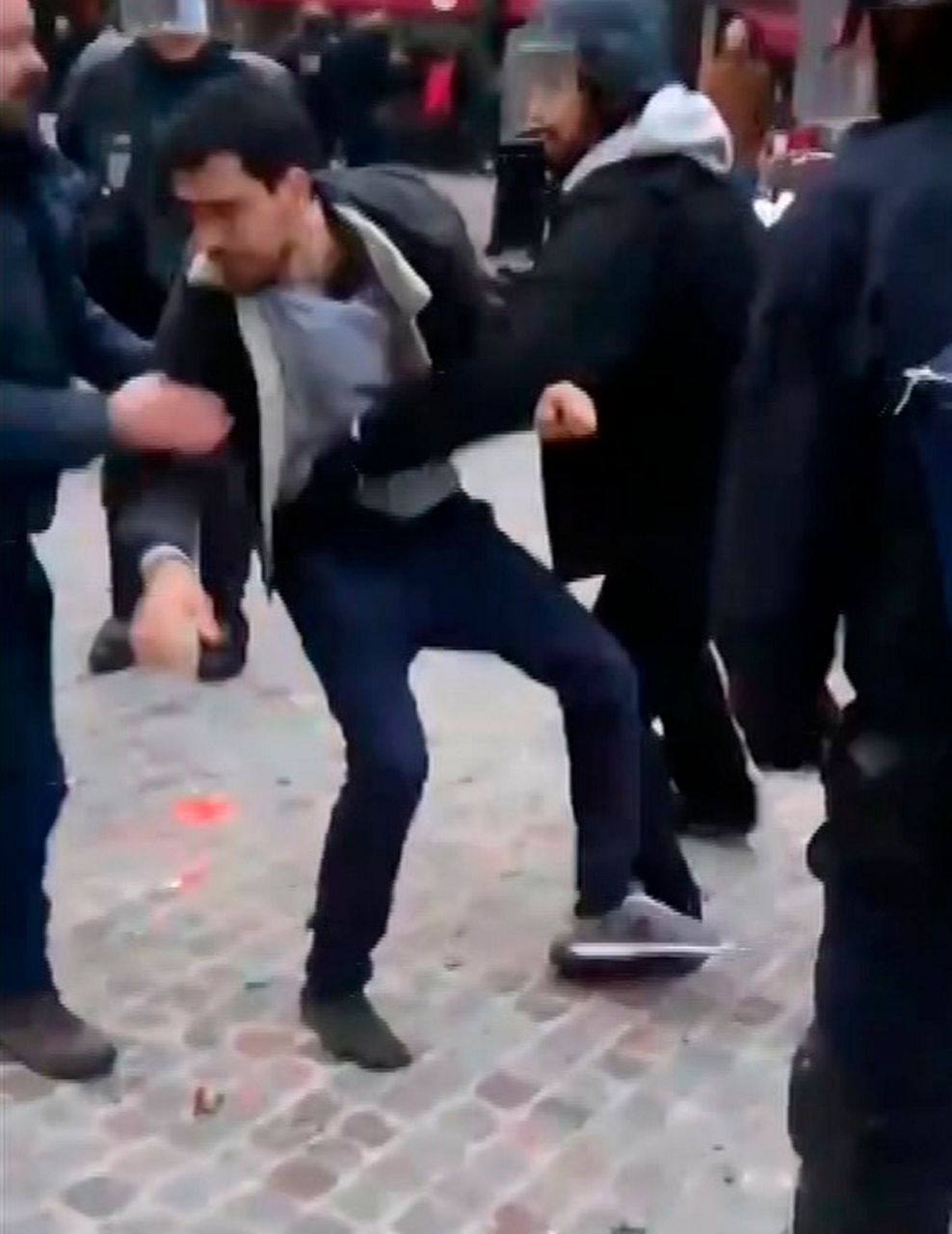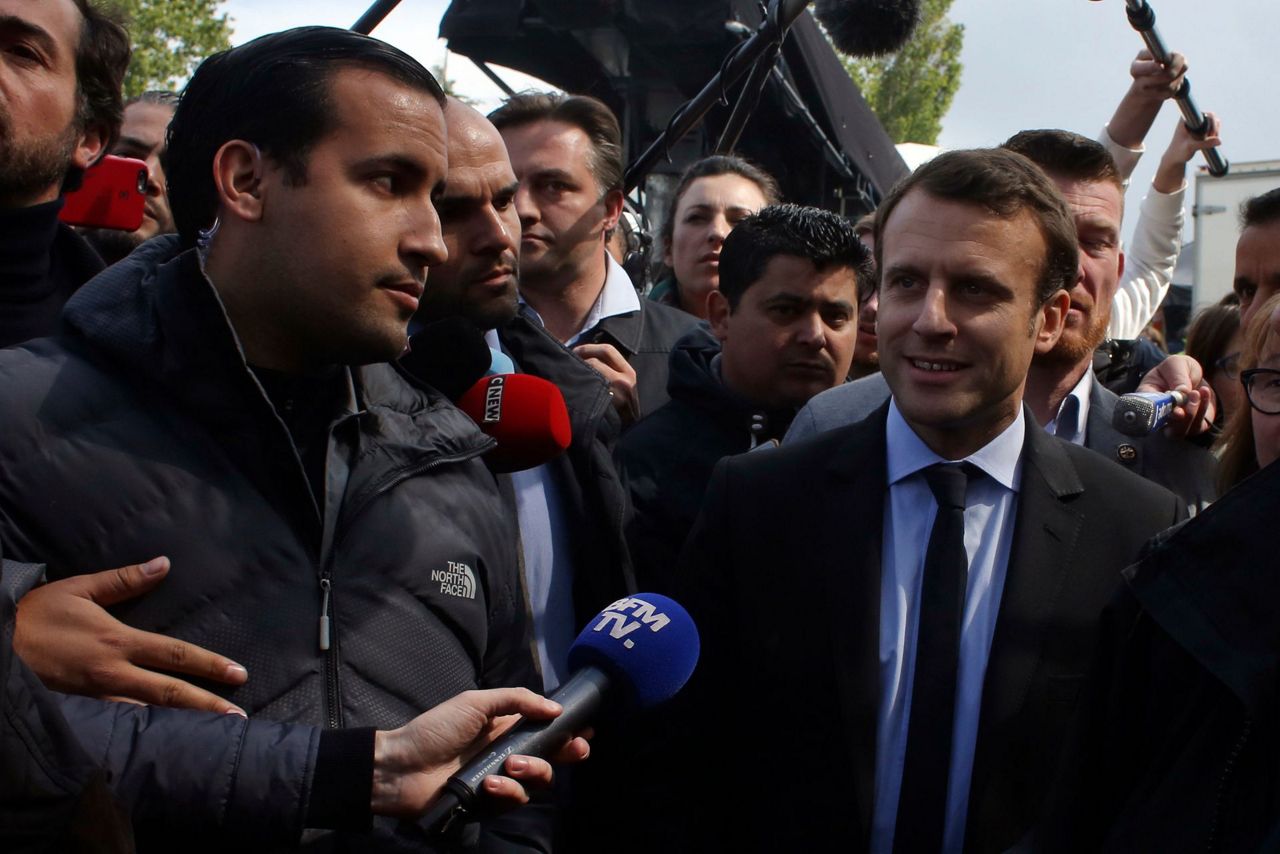PARIS (AP) — The security aide close to French President Emmanuel Macron who is alleged to have beaten up a protester during a May Day protest is "dumbfounded" by the storm around him, his lawyers said Monday.
Footage of the violence has caused consternation across France, and the affair has become the biggest internal crisis to hit Macron since he became president in May 2017.
A parliamentary inquiry opened hearings Monday, a day after an investigating judge filed preliminary charges against the aide, Alexandre Benalla.
In a statement, Benalla's lawyers said he "took the initiative" to intervene at the protest because police on the scene were "apparently overwhelmed."
Attorneys Audrey Gadot and Laurent-Franck Lienard described Benalla's actions as "vigorous" but "without violence" — despite video showing him beating a protester and yanking another protester away.
The lawyers suggested in the statement, published on TF1-TV's Internet site, that Macron was the target of politicians and media focused on the case since Benalla was identified five days ago by the newspaper Le Monde as the man acting violently.
"This personal initiative (of Benalla) ... today clearly serves to tarnish the presidency in conditions that defy understanding," the statement said.
The presidential office's failure to act immediately has raised a series of questions about the actions of those close to Macron, who has yet to comment.
The lawyers' comments came as the first of a series of hearings into the May Day events began. The parliamentary commission was hastily set up to try to find out why it took 2 1/2 months to open a judicial probe into the actions of Benalla.
On Sunday, Benalla and four others, including three ranking police officers, were informed of charges against them regarding their alleged roles during the protest that turned particularly violent, with shops and cars damaged.
Though the Elysee Palace knew about what Benalla had done while embedded with police as an observer, the aide was able to keep his job. The Elysee changed tack last week and said it was firing Benalla. But that development only came about after Le Monde identified the aide in a video of the incident published.
At the hearing, France's interior minister, Gerard Collomb, and the Paris police chief insisted it wasn't their job to inform judicial officials that Benalla beat up a protester. However, they contradicted each other about who told whom about what happened May 1.
Collomb, who was told about the incident the day after the protests and is in charge of France's security forces, said Benalla was not under his supervision.
"I will remind you ... that on May 2, I made sure that the president's office as well as the police prefecture had been informed about Mr. Benalla's doings," Collomb said.
"And so I thought, as the rule is in cases of misconduct, that adequate measures had been taken .... It was up to them to sanction it. And eventually to inform judicial authorities."
Laying out the sequence of events, Collomb said his top aide informed him on May 2 of a video showing Benalla beating up a protester and that both the president's office and police chief were informed.
The minister said he was advised of the sanctions later that day. Benalla's subsequent two-week suspension and his re-assignment to a desk job have been roundly viewed as inadequate.
Like Collomb, Paris Police Chief Michel Delpuech told the committee that he failed to involve judicial officials because he thought the matter had been settled by the relevant authority.
"I considered it falls to the initiative of officials in the hierarchy," he said.
The police chief denounced what he called "unhealthy cronyism" to explain Benalla's apparent sway within France's security apparatus.
Benalla, he said, was a "known quantity," although he conceded he did not personally know him.
However, both the interior minister and the police chief said Benalla was among some 40 people present in the command room on the night of May 1, watching video screens of the police cleanup operation of the protests.
Numerous lawmakers have implored Macron to come forward with explanations about why sufficient action was not taken in May against Benalla.
"This silence cannot last," conservative lawmaker Valerie Boyer said Monday after hours of hearings, which were set to continue into the night.
___
Associated Press writer Thomas Adamson in Paris contributed to this report.
Copyright 2018 The Associated Press. All rights reserved. This material may not be published, broadcast, rewritten or redistributed.



